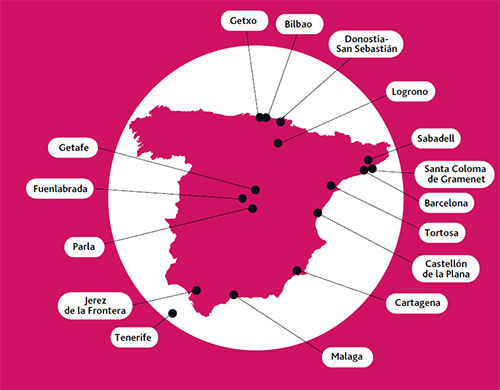The OBITen is a joint initiative of the Cabildo of Tenerife and La Laguna University arising in 2001 with the aim of promoting scientific research of migratory movements on the island of Tenerife. It prioritizes the need to apply theoretical knowledge to the planning and management of diversity policies, betting on the link between theory and practice. This goal has guided the definition of its research.
Since its creation in 2001, the OBITen represents a turning point regarding the ability to generate knowledge and to promote discussion and reflection on migration issues. Each year since 2001 have been organizing technical seminars to deepen the main topics related to the management of migration flows, diversity and interculturalism. Over the years, the OBITen has become a key instrument to plan and implement Cabildo’s intercultural strategy. In the early years there was an urgency to respond to the needs of the moment. However, from 2009 evidenced the need to bet more on participation and interculturalism on the island. This results in the creation of the project "Together in the Same Direction" which is the Cabildo intercultural strategy.







